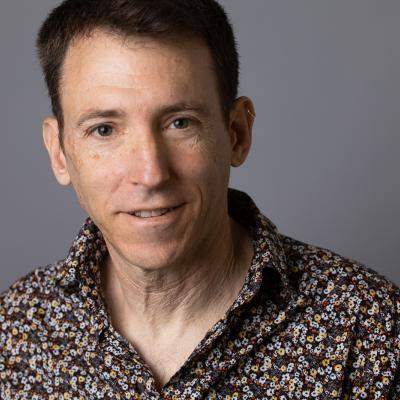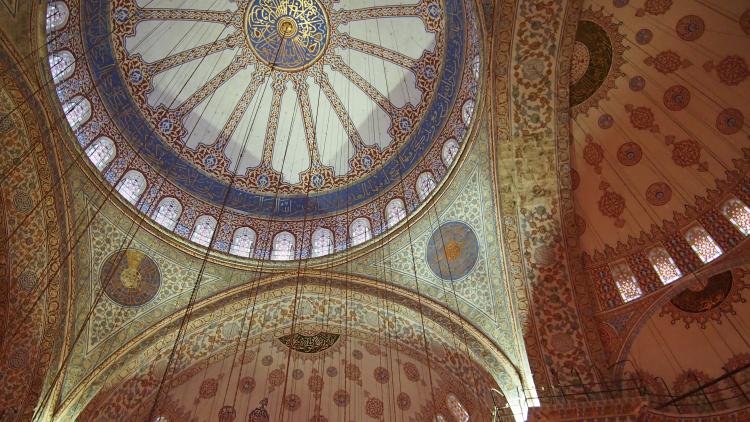MPhil/PhD in Near and Middle Eastern Studies



Key information
- Duration
- 3 years (full-time), 6 years (part-time)
- Attendance mode
- Full-time or part-time
- Location
- On campus
- Fees
-
Home (full-time): £5,055 per year
International (full-time): £23,390 per year - Entry requirements
-
We normally require a 2.1 bachelor's degree (or its equivalent) plus a Masters degree in appropriate subject area plus one reference. In exceptional cases we may accept applicants who do not meet these criteria if they show evidence of a strong Masters degree and/or appropriate level of relevant work experience. International applicants should also see Doctoral School English language requirements
Course overview
The MPhil/PhD in Near and Middle Eastern Studies programme provides training in research methods and the study of the Near and Middle East, an interdisciplinary subject area, with research undertaken in the School of Languages, Cultures and linguistics at SOAS.
Why Near and Middle Eastern Studies at SOAS?
- SOAS is ranked 1st in London in the Complete University Guide 2021 for Middle Eastern and African Studies, and 6th in UK
- SOAS has an unrivalled reputation as the foremost provider of Near and Middle Eastern studies
Structure
All students register in year 1 of the programme as MPhil students. The upgrade from MPhil to PhD takes place at the end of the first academic session for full time students (or at the end of the second academic session for part time students).
All new MPhil/PhD students are provided with a supervisory committee of three members, comprising a main or primary supervisor, and a second and third supervisor. The split in time commitment across the supervisory committee is 60:25:15. In the first year students are expected to meet their main supervisor on a bi-weekly basis for a period of at least one hour.
The student’s primary supervisor is always a member of the Department in which the student is registered. The second and third supervisors, who act in a supplementary advisory capacity, may be from the same Department, or other Departments/Centres in the Faculty of Languages and Cultures or in Departments/Centres in the other Faculties of the School.
Depending on the nature of the research, joint supervision is sometimes recommended, under the direction of two primary supervisors. In such cases the student has only one further supervisor on their committee.
The student’s progress is further overseen by a Departmental Research Tutor.
Year 1
In the first year, students prepare for research by following a research training seminar series (RTS) convened at the Faculty level by the Associate Dean for Research and supported by the generic training on offer in the Academic Development Directorate (ADD) .
Students working in the fields of literature and cultural studies are also invited to participate in the additional training offered in the Centre for Cultural, Literary and Postcolonial Studies (CCLPS).
Students may also be encouraged by supervisors to attend additional taught courses relevant to their research and to their training needs. These may include specialist disciplinary, language or regional culture courses or research training in other Departments outside the Faculty.
Year 1 full-time students (year 2 for part-time students) are required to submit a core chapter and research proposal (of about 10,000 words), typically including the following elements:
- Research rationale (1,000 words): a brief description of the scope of the research, its significance and its context, highlighting the project’s research questions, conceptual framework, and methodology, and addressing any ethical issues that may have been identified. (Ethical concerns are particularly important when you are working with human research subjects. See research ethics and due diligence)
- Outline of proposed dissertation (250 words)
- Schedule of completion (250 words)
- Bibliography (excluded from word count)
- Draft of core chapter (8,500 words) : a specimen of analytical writing that presents an argument which is to form an integral part of the thesis. The argument should draw on a clearly-articulated methodology, address both factual and theoretical concerns, and cite evidence from both primary and secondary sources.
Adjustments to one or more of these sections, including additions or deletions where appropriate, are possible by prior arrangement between the students and lead supervisors.
The upgrade process from MPhil to PhD status is based upon an assessment of the core chapter by the student’s research committee, and upon on a 20-30 minute oral presentation, followed by a discussion. The oral presentation is given to Departmental staff and research students. Usually the PG research tutor and the three members of the supervisory committee are all present in addition to fellow postgraduate students or interested faculty members. The viva follows the presentation for a further 15-20 minutes. On successful completion of the extended proposal, students are formally upgraded to PhD and proceed to the second year. (If the assessors consider there to be shortcomings in the upgrade proposal, students will be asked to revise it to their satisfaction before the upgrade to PhD status can be confirmed.) Students are not normally permitted to proceed to the second year until the upgrade process has been completed.
Year 2
The second year (or part-time equivalent) is normally spent engaged in research. This may be by any combination of fieldwork and research in libraries and material collection as agreed between the student and the supervisor(s).
Year 3
The third year (or part-time equivalent) is devoted to writing up research for the PhD thesis. During this time, students will normally give a presentation in a research seminar organised by the Departmental Research Tutor, comprising a select number of staff members with special expertise in the topic and other research students. During the third year (or part time equivalent) students will present draft chapters to their main supervisor for comment, before completing a final draft of the thesis.
Once a full draft is complete, the work is assessed by all members of the supervisory committee and the student can either submit the thesis or move on to Continuation Status to be given a further 12 months to complete the thesis and submit for examination. The thesis must be completed within 48 months from the time of registration (or part time equivalent).
The thesis – not to exceed 100,000 words in length - is examined by two leading authorities in the field, one of whom is internal to the University of London and one of whom is external to the University.
PhD Degrees are awarded by SOAS from registration in 2013 and are subject to SOAS regulations.
Important notice
The information on the website reflects the intended programme structure against the given academic session. The modules are indicative options of the content students can expect and are/have been previously taught as part of these programmes.
However, this information is published a long time in advance of enrolment and module content and availability is subject to change.
Teaching and learning
Academic staff and their research areas
- Professor Muhammad A S Abdel Haleem, OBE BA (Cairo) PHD (Cantab) FCIL (London)
- Qur’an, Hadith, Tafsir; Islam in society; classical and modern Arabic literature
- Dr George Dedes BA MA PhD (Harvard)
- Early Anatolian Turkish; Ottoman language and literature; Ottoman history; Turkish-Greek relations; modern Turkish culture
- Dr Marlé Hammond BA MA PhD (Columbia University)
- Classical and Modern Arabic Literature and Poetics; Egyptian and Arabic Cinemas; Women's Writing; Folkloric Narrative
- Dr Chris Lucas BA (SOAS) MA PhD (Cantab)
- Grammatical change and the interface between syntax, semantics and pragmatics in Arabic and other Afro-Asiatic languages, and in English and other (Indo-)European languages.
- Professor Wen-Chin Ouyang BA BEd (Tripoli) MA MPhil PhD (Columbia University)
- Classical and modern Arabic literature, The 1001 Nights and Arabic Popular Epics, Classical and modern Arabic Critical thought and theory, Networks of Circulation and World Literature, Semiotics of the Visual
- Dr Mustafa Shah BA PhD (London)
- The early Arabic linguistic tradition; classical Islamic theology and jurisprudence
- Dr Yair Wallach BSc MA PhD (University of London)
- Culture, Society and History of modern Israel/Palestine; Visual and Material Culture; Urban Studies; Israel-Palestine Conflict
Some recent research theses
- Siba Aldabbagh Word and Image in Visual Art and Poetry from the Arab World
- Charis Bredin Creaturely Encounters: Animals in the Libyan literary imaginary
- Maria De Cillis The Discourse of Compromise: Theoretical Constructs of Free Will and Predestination in the Works of Avicenna, Ghazālī and Ibn ʿArabī.
- Jacob Eriksson Swedish mediation of the Israeli-Palestinian conflict: a study of the utility of small-state mediation and Track II diplomacy.
- Benjamin Geer Priests of the Nation: Nationalism and Power in Modern Egyptian Literature and Cinema.
- Alyn D. Hine Russian Literature in the Works of Mikhail Nu'ayma
- Christie Johnson Authorship in Kitab al-aghani: production, reception, subjectivit
- Walid Khazendar Place in the Making: A Study on Image-Making in Early Arabic Poetry.
- Maha Abdel Megeed Muwaylihi's Isa ibn Hisham: Between 18th Century Revival and 19th Century Neoclassical Renaissance
- Krikor Moskofian Literature and Survival: Literary Criticism and the Construction of Cultural Identity in Armenian Printed Press of Diaspora 1919-1928.
- Khadiga Musa A Critical Edition of a Twelve/Eighteenth Century Manuscript on Legal Maxims: ‘Umdat al-Nazir fi’l-Ashbāh wa’l-Naẓā`ir.
- Laetitia Nanquette The Eye Sees Not Itself: Images of France and Iran Through Their Literatures (1979-2009).
- Hany Rashwan Literariness and aesthetics in ancient Egyptian literature: towards an Arabic-based critical approach - Jinās as a case study.
Scholarships
| Title | Deadline date |
|---|---|
| Tibawi Trust Award | |
| Felix Scholarships | |
| SOAS Research Studentships |
Employment
Graduates of the School of Languages, Cultures and Linguistics leave SOAS not only with linguistic and cultural expertise, but also with skills in written and oral communication, analysis and problem solving.
Recent graduates have been hired by:
- Africa Matters
- Amnesty International
- Arab British Chamber of Commerce
- BBC World Service
- British High Commission
- Council for British Research in the Levant
- Department for International Development
- Edelman
- Embassy of Jordan
- Ernst & Young
- Foreign & Commonwealth Office
- Institute of Arab and Islamic Studies
- Middle East Eye
- Saïd Foundation
- TalkAbout Speech Therapy
- The Black Curriculum
- The Telegraph
- United Nations Development Programme
- UNHCR, the UN Refugee Agency
- Wall Street Journal
Find out about our Careers Service












